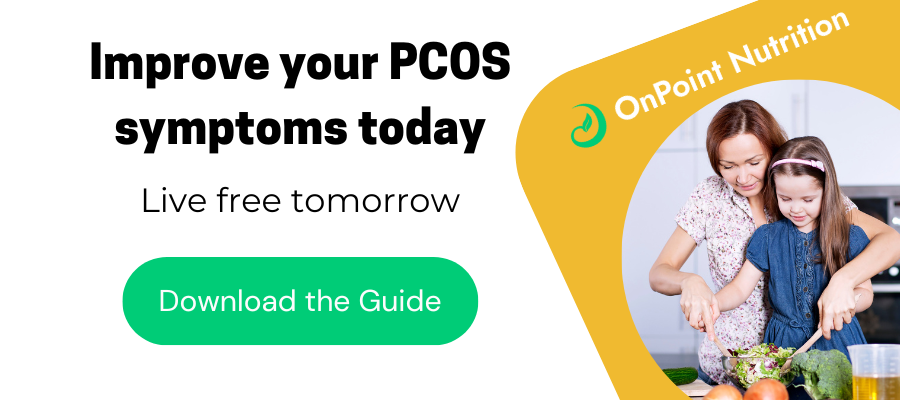
Here are some of our most frequently asked PCOS questions answered:
What causes PCOS?
The exact root cause of PCOS is unknown. Women who are diagnosed with PCOS (polycystic ovary syndrome) may have infrequent or missed periods, increased levels of the androgen hormone, or insulin resistance.
What are common signs and symptoms of PCOS?
PCOS is related to a hormone disorder commonly seen in women of reproductive ages. Most signs and symptoms are related to your menstrual cycle and/or excessive hormones.
One of the most common signs of PCOS is female infertility. Other symptoms that are commonly related to PCOS include: irregular menstrual cycles, ranging from absent, too frequent, heavy, or unpredictable periods. Women who are diagnosed with PCOS often are obese and have excessive hair growth on their face, chest, abdomen, and thigh (known as hirsutism). Other women may experience hair loss. Oily skin, patches of thickened, velvety, dark skin along with multiple small fluid-filled sacs in the ovaries are other common symptoms related to PCOS.
What are health risks for women with PCOS?
PCOS not only affects women’s reproductive systems, but there is also increased risk of other health conditions including cardiovascular health and metabolic health. Women who become insulin resistant increase their chances of developing Type 2 Diabetes or cardiovascular disease. Some women with PCOS have a risk of developing a condition (endometrial hyperplasia) where the lining of their uterus becomes too thick and the risk for endometrial cancer increases.
Additional heath risks for women with PCOS include sleep apnea and depression.
What effect can weight loss have on PCOS Symptoms?
Weight loss can be very beneficial for improving PCOS Symptoms. Some added benefits of weight loss include improved insulin response, improved cholesterol levels, along with improving and regulating your menstrual cycle. Additional benefits of weight loss may relieve symptoms of excessive acne and hair growth by regulating your body’s hormones.
What is insulin resistance?
Insulin resistance is a condition where your body’s cells do not respond correctly to insulin release. In your body, insulin helps convert glucose into energy. When you eat a meal, your pancreas releases insulin to control your body’s blood sugar levels. When your body becomes insulin resistant, glucose levels increase and do not respond to insulin. Over time, insulin resistance may lead to diabetes mellitus and increased testosterone levels.
Insulin resistance is influenced by many factors. Genetics, aging, and ethnicity can underlie insulin resistance. Another factor is excess weight (especially in the belly area) and having a BMI above the normal range. Eating a diet high in simple carbohydrates may also lead to insulin resistance and make weight loss harder to achieve.
What foods should I avoid with PCOS?
While there is no scientific data that supports eliminating any specific food groups or foods to improve symptoms of PCOS, some individuals do follow a dairy-free, gluten-free or soy-free diet. We recommend working with your dietitian or nutritionist to see if an elimination-diet is appropriate. We also recommend a PCOS Diet that emphasizes eating whole, unprocessed, healthy food to improve vitamin absorption, nutrient intake, and weight loss.
What should I eat with PCOS?
Focus on high fiber foods. High fiber foods help slow digestion and combat insulin resistance. This approach leads to more steady energy levels instead of feeling highs and lows.
Eat foods with anti-inflammatory benefits. These foods including kale, spinach, nuts, olive oil, berries, and fatty fish. These foods also reduce inflammation.
Lean protein is another food group that women with PCOS should include in their diets. Lean protein foods have the same benefits as high fiber foods: they are digested slowly, which provides long lasting energy to keep you feeling full and satisfied between meals.
Topics

Brittany Linn is a Registered Dietitian at OnPoint Nutrition. She is a compassionate dietitian with over 10 years of diverse experience in the wellness, coaching, and nutrition education world. Her ultimate objective for each person she works with is to teach them how to create lasting wellness habits and increase their confidence around food and within themselves.





